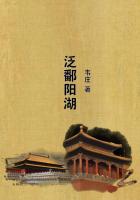"Why, it's easy enough," said he. "You see, I hung a lantern, with a reflector, before the target, just a little to one side. It lighted up the target beautifully, and I believe there was a better chance of hitting it than by daylight, for the only thing you could see was the target, and so your attention was not distracted. To be sure," he said, in answer to a question, "it was a good deal of trouble to find the arrows, but that I always have. When I get so expert that I can put all the arrows into the target, there will be no trouble of the kind, night or day. However," he continued, "I don't practise any more by night. The other evening I sent an arrow slam-bang into the lantern, and broke it all to flinders. Borrowed lantern, too.
Besides, I found it made Miss Martha very nervous to have me shooting about the house after dark. She had a friend who had a little boy who was hit in the leg by an arrow from a bow, which, she says, accidentally went off in the night, of its own accord.
She is certainly a little mixed in her mind in regard to this matter, but I wish to respect her feelings, and so shall not use another lantern."As I have said, there were many good archers among the ladies of our club. Some of them, after we had been organized for a month or two, made scores that few of the gentlemen could excel.
But the lady who attracted the greatest attention when she shot was Miss Rosa.
When this very pretty young lady stood up before the ladies' target--her left side well advanced, her bow firmly held out in her strong left arm, which never quivered, her head a little bent to the right, her arrow drawn back by three well-gloved fingers to the tip of her little ear, her dark eyes steadily fixed upon the gold, and her dress, well fitted over her fine and vigorous figure, falling in graceful folds about her feet, we all stopped shooting to look at her.
"There is something statuesque about her," said Pepton, who ardently admired her, "and yet there isn't. A statue could never equal her unless we knew there was a probability of movement in it. And the only statues which have that are the Jarley wax-works, which she does not resemble in the least. There is only one thing that that girl needs to make her a perfect archer, and that is to be able to aim better."This was true. Miss Rosa did need to aim better. Her arrows had a curious habit of going on all sides of the target, and it was very seldom that one chanced to stick into it. For if she did make a hit, we all knew it was chance and that there was no probability of her doing it again. Once she put an arrow right into the centre of the gold,--one of the finest shots ever made on the ground,--but she didn't hit the target again for two weeks. She was almost as bad a shot as Pepton, and that is saying a good deal.
One evening I was sitting with Pepton on the little front porch of the old ladies' house, where we were taking our after-dinner smoke while Miss Martha and Miss Maria were washing, with their own white hands, the china and glass in which they took so much pride. I often used to go over and spend an hour with Pepton. He liked to have some one to whom he could talk on the subjects which filled his soul, and I liked to hear him talk.
"I tell you," said he, as he leaned back in his chair, with his feet carefully disposed on the railing so that they would not injure Miss Maria's Madeira-vine, "I tell you, sir, that there are two things I crave with all my power of craving--two goals Ifain would reach, two diadems I would wear upon my brow. One of these is to kill an eagle--or some large bird--with a shaft from my good bow. I would then have it stuffed and mounted, with the very arrow that killed it still sticking in its breast. This trophy of my skill I would have fastened against the wall of my room or my hall, and I would feel proud to think that my grandchildren could point to that bird--which I would carefully bequeath to my descendants--and say, `My grand'ther shot that bird, and with that very arrow.' Would it not stir your pulses if you could do a thing like that?""I should have to stir them up a good deal before I could do it," I replied. "It would be a hard thing to shoot an eagle with an arrow. If you want a stuffed bird to bequeath, you'd better use a rifle.""A rifle!" exclaimed Pepton. "There would be no glory in that. There are lots of birds shot with rifles--eagles, hawks, wild geese, tomtits--""Oh, no!" I interrupted, "not tomtits."
"Well, perhaps they are too little for a rifle," said he. "But what I mean to say is that I wouldn't care at all for an eagle Ihad shot with a rifle. You couldn't show the ball that killed him. If it were put in properly, it would be inside, where it couldn't be seen. No, sir. It is ever so much more honorable, and far more difficult, too, to hit an eagle than to hit a target.""That is very true," I answered, "especially in these days, when there are so few eagles and so many targets. But what is your other diadem?""That," said Pepton, "is to see Miss Rosa wear the badge.""Indeed!" said I. And from that moment I began to understand Pepton's hopes in regard to the grandmother of those children who should point to the eagle.
"Yes, sir," he continued, "I should be truly happy to see her win the badge. And she ought to win it. No one shoots more correctly, and with a better understanding of all the rules, than she does. There must truly be something the matter with her aiming. I've half a mind to coach her a little."I turned aside to see who was coming down the road. I would not have had him know I smiled.
The most objectionable person in our club was O. J.
Hollingsworth. He was a good enough fellow in himself, but it was as an archer that we objected to him.













